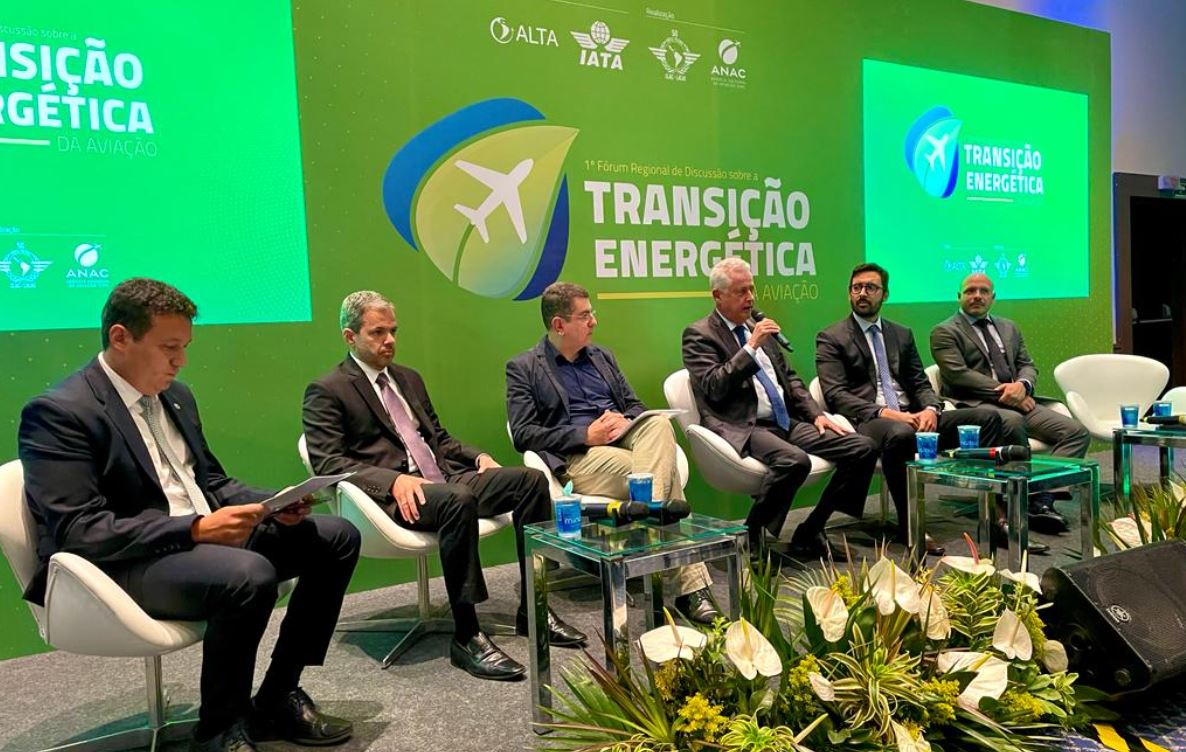The 1st Regional Aviation Energy Transition Forum was promoted by the Latin American Civil Aviation Commission (CLAC), in collaboration with the National Civil Aviation Agency (ANAC-Brazil) and with the support of the International Air Transport Association (IATA). The event took place in the city of São Paulo, Brazil, on August 30 and 31, 2023.
Government officials, representatives from the aviation and energy sectors, aircraft manufacturers, fuel producers and experts met at the forum with the aim of sharing knowledge and discussing common challenges for promoting sustainable aviation fuels in Latin America. The discussions considered the international aviation sector’s decarbonization commitments, established by ICAO’s Long-Term Aspirational Goal, while maintaining a focus on the accessibility of aviation services provided to the population.
Due to the essential role that aviation plays as a means of transport and as a driver of trade and tourism, decarbonizing the sector represents a process with a significant social and economic impact, requiring the collaboration of various actors both inside and outside the sector.
During the 2023 Annual General Meeting, IATA announced its expectation that total production of renewable fuels will reach an estimated capacity of at least 69 billion liters (55 million tons) by 2028. Sustainable aviation fuels (SAFs) will comprise an important part of this growing production, made possible by the creation of new renewable fuel refineries and the expansion of existing facilities. Notably, this expected production spans several geographical regions, including North America, Europe and Asia-Pacific.
«South American countries, in particular Brazil, will play a crucial role in advancing SAF production. The projected production capacity and the abundant availability of sustainable raw materials in the region are reasons for great encouragement. But to drive these advances towards commercial levels of SAF in the region, political leadership from governments is essential,» said Pedro de la Fuente, Senior Manager, External Affairs & Sustainability from IATA.
In this sense, appropriate policies and incentives play a key role in the expansion and diversification of SAF production. IATA advocates harmonizing policies across sectors and geographic regions, reducing barriers to entry for new players interested in entering the FAS market, especially new suppliers of technology and raw materials.
These policies should cover the implementation of SAF in the short and long term, providing the necessary security for producers and investors to allocate existing capacity to SAF, as well as developing new infrastructure. Furthermore, policies should stimulate research and development into new production approaches, along with their associated supply chains. Given the emerging nature of the SAF market and the need for scalability and diversification of raw materials/production routes, the focus of policies at this stage should be on incentives that support innovation and project generation.
Promoting sustainability in civil aviation is an important and strategic goal for ANAC, which is responsible for regulating the International Civil Aviation Organization’s (ICAO) Carbon Offsetting and Reduction Scheme for Aviation (Corsia) in Brazil.
«ANAC has a strong commitment to environmental governance. Along these lines, we are investing heavily in projects to encourage good sustainable practices in the airline industry, such as the SustentAr Program (for airlines) and the Sustainable Airports Program. But we know that the SAF will have the potential to make a real difference in the world in the coming years. And Brazilian aviation will not be left behind. We are working to make sustainable aviation fuels a reality in Brazil,» said the Agency’s CEO, Tiago Pereira.
Corsia provides for the offsetting of CO2 emissions from international flights with the aim of achieving carbon-neutral growth, i.e. that emissions remain at the same levels as in 2020, without the airline industry having to stop growing. Emissions can be offset through the purchase of carbon credits or the use of sustainable aviation fuels (SAF).



